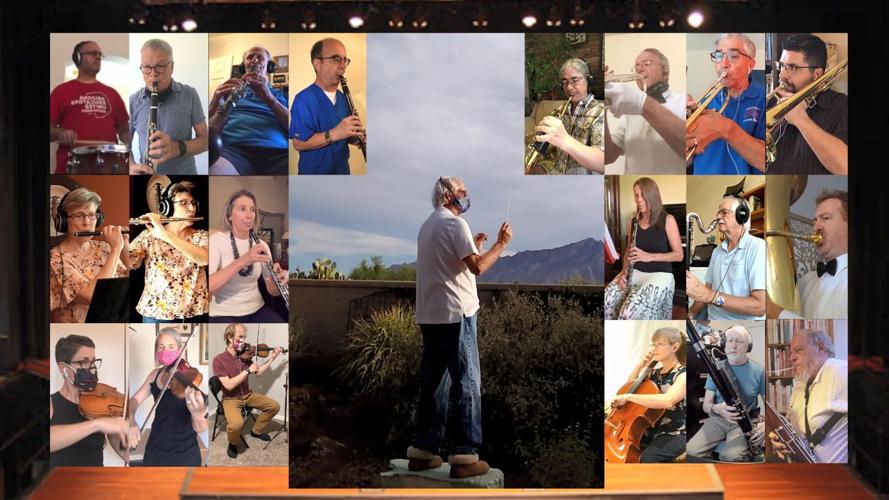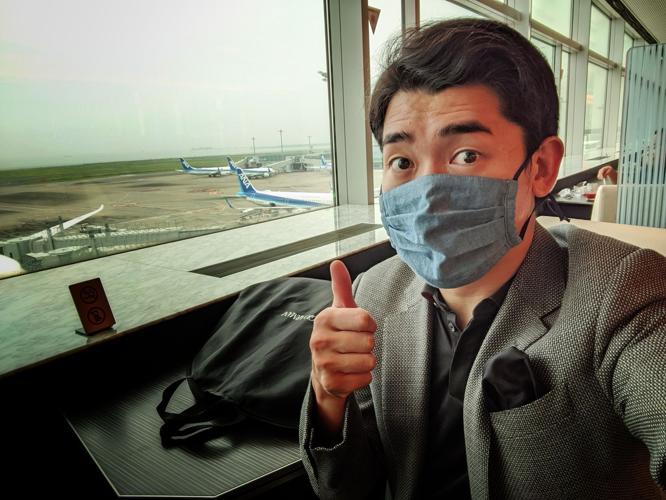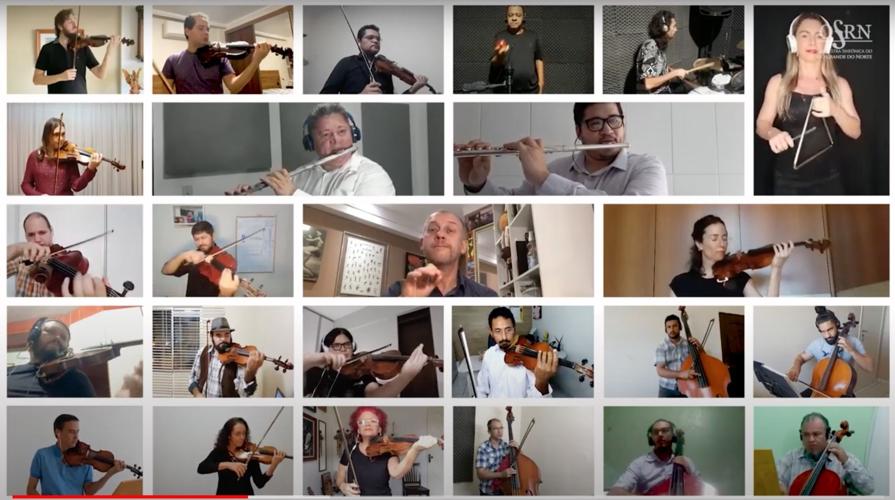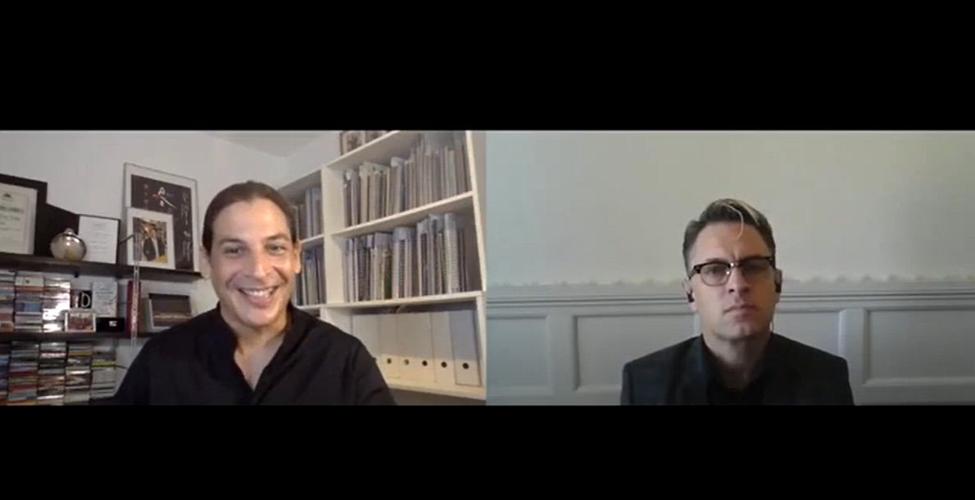Charles David Young was feeling a bit antsy in late May. It had been months since he and his fellow Foothills Phil musicians had shared a stage after rehearsals were halted in March because of the coronavirus pandemic.
On top of that, the multigenerational volunteer orchestra in late spring made the unthinkable decision to cancel its 2020-21 season — the first time that’s happened in the community orchestra’s 25 years.
“Desperation is the mother of invention, and it was this that led me to propose to Bob Atwell, who has been composing amazing pieces for the Foothills Phil for many years, to write something for the times we are living through,” recalled Young, who has played trumpet in the orchestra for seven years.
What Atwell, a retired engineer who has been composing since 1960, came up with was a delightful piece aptly named “Corona Waltz.” Young says it fit his bill and “captures both the desperation and the hope that this virus has wrought on us as it pirouettes its way through our society, bringing out both our best and worst angels.”
The work, which 20 members of the 80-member orchestra recorded in June for a YouTube video that was released last week, is among the more ambitious projects undertaken by Tucson orchestras during the pandemic. It’s also one that shows that while the health crisis might have closed concert halls and canceled classical music seasons worldwide, it has not silenced Tucson orchestras and conductors.
From the Tucson Symphony Orchestra’s virtual book club streamed through its YouTube channel to True Concord Voices & Orchestra’s weekly themed playlists that are attracting an audience well beyond our borders, conductors and musicians are thinking outside the box and turning to technology to keep the music going.
“I think one of the things that we all are learning through this difficult times is how much music means to the world, especially now that live music has been put on hold,” TSO Music Director José Luis Gomez said in an email interview from Italy. “I think people are realizing the importance of connecting through music.”
Exploring possibilities
The exercise might serve them well as these groups, whose seasons are two to three months away, consider how they will make live music with the pandemic restrictions.
“We are very much knee-deep into how we are going to pull off the next season,” True Concord Music Director Eric Holtan said last week, days before his board of directors held another of its near-weekly meetings to go over ideas for the upcoming season. “We are still just exploring all kinds of possibilities.”
Those possibilities could include livestreaming concerts, which could be performed without a live audience. Streaming their concerts is an idea that the professional ensemble had been flirting with for some time now.
“Unfortunately it took the damn pandemic to get us to really work on this,” Holtan said.
True Concord also is exploring possible outdoor concerts and drive-in performances where the audience would remain in their cars. They are among the ideas that the group has shared with its audience members in a series of surveys over the past couple months.
Holtan, in early April, launched his weekly themed playlists, curating at least 10 performances that follow a specific theme — the same approach he takes when planning the group’s concerts. The performances, which run about an hour, include works by his Grammy-nominated group, whose vocalists come from all over the country, as well as works by other choirs.
A daily dose of music
Nearly 6,000 miles away in Tokyo, Keitaro Harada, a University of Arizona Fred Fox School of Music alumnus and regular TSO guest conductor, has been hosting his daily “Music Today” conversations and performances with musicians from around the world. Harada and his guests discuss music in the context of the times we are all experiencing.
He broadcasts from his native Tokyo, where he has been since the U.S. restricted travel abroad in March.
Harada, who is the music director of the Savannah (Georgia) Philharmonic, does two “Music Today” shows a day, one in Japanese and one in English to attract his audience in the United States. The shows are broadcast on Harada’s YouTube channel.
He launched the series on May 25 and has done more than 80 shows, attracting more than 90,000 views.
“I wanted to give the world a daily occasion to put a smile on their face,” Harada said in an email. “In my opinion this world crisis has forced musicians to do two things: Do nothing or do something.”
When life gives you lemons
Southern Arizona Symphony Orchestra Music Director Linus Lerner, who has been back in his native Brazil since mid-March, produced several virtual performances that were streamed online in support of health-care workers.
He did two with his Brazilian orchestras — “Pie Jesu” from Duruflé’s Requiem with his Gramado Symphony Orchestra, and Bach’s G String Aria with his Rio Grande do Norte orchestra and Brazilian soprano Tatiana Vanderlei — and one with a dozen members of SASO performing Italian composer Ennio Morricone’s “Gabriel’s Oboe” from the 1986 British film “The Mission.”
All three videos, created from videos the musicians filmed at home, were dedicated to health-care workers in Tucson and Brazil.
“I believe that the pandemic is something that we cannot avoid, but we can definitely learn something from it and turn it into something good,” said Lerner. “If God gives you lemons, we will make lemonade, right? I am sure I will come out of this crisis a better person and can’t wait to return to the stage with my groups to share that experience.”
Lerner and his Brazilian orchestra also hosted a young artist competition in May and June that attracted 122 young musicians competing for a chance to perform with the orchestra. More than 13,000 people cast online votes for the winners.
Next, Lerner plans to host a Brazilian version of his annual Linus Lerner International Voice Competition, an event heavily backed by SASO sponsors and held each year during Lerner’s Mexican opera festival. The virtual edition will begin in August with voting taking place in September.
Connecting despite coronavirus
Gomez’s book club, which was the online version of a similar club he hosted last summer at two Tucson libraries, reached 5,000 people through social media, TSO officials said. The club includes conversations about famous musical figures and theories.
Tucson Symphony Orchestra members also have chipped in to engage the audience with videos of their isolation performances including by husband-and-wife violinists Michael and Melanie Fan, and several videos from Concertmaster Lauren Roth. A documentary of the orchestra’s groundbreaking Young Composers Project attracted 2,800 views, orchestra officials said.
Nearly 200 people viewed the Foothills Philharmonic’s three-minute “Corona Waltz” video in the days after it was released early last week. The video was produced by Young, who edited the videos from nearly 20 Foothills Phil players and put them together. Atwell, who edited the audio portion, filmed himself conducting in his backyard with a mask on.
Atwell said that once he decided he was going to write a waltz and decided the form it would take, the composing came fast and furious.
“I haven’t written that fast since college. It was a blast,” said Atwell, who studied classical guitar at the Berklee College of Music before switching to electrical engineering and a career designing integrated circuits.
His career is what brought him to Tucson from his native Boston in 1984. Except for a brief stint working in Colorado, he’s been here ever since, retiring in 2013.
He joined the Phil in 2009 after taking up the bass clarinet. He also took composing classes at the UA and returned to his first love of composing. He has written dozens of pieces that have been performed by the Foothills Phil and other community orchestras. He had works that were on the lineup in the spring for the Tucson Pops Orchestra and UA’s Arizona Symphonic Winds, but those concerts were canceled because of the pandemic.
With hundreds already having experienced the “Corona Waltz,” its reach may be even greater, as has been the case for Atwell’s colleagues in their various coronavirus ventures.
Atwell, 73, said the “Corona Waltz” could find life with high school or college orchestras; he has published the piece, and while he wrote it to be challenging, it’s easy enough for less experienced musicians, he said.
The piece also found a fan in Texas, who commissioned Atwell in early June to write a piece about the ongoing civil unrest surrounding this spring’s nationwide social-justice protests. About 100 musicians from around the country have signed on to take part in a recording of “Overture for Equality” in August; he hopes it will be released in mid-September.







